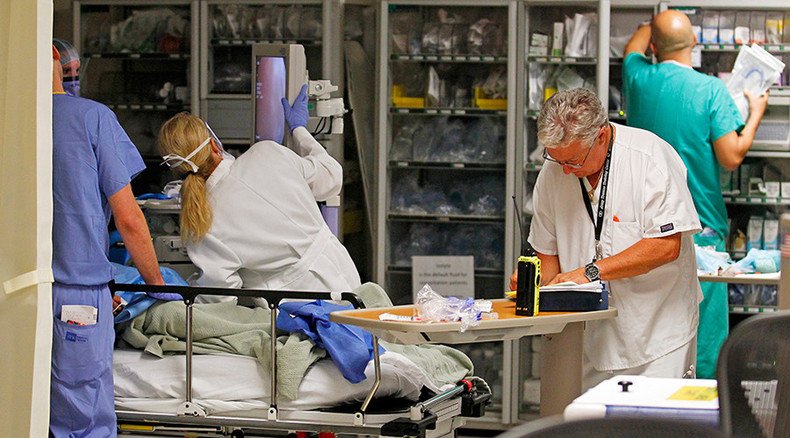Consumer advocates fight unexpected ‘out-of-network’ medical bills

A third of all US patients report receiving surprise medical bills that they had thought would be covered by their insurance because of uncontracted workers providing care. Consumer advocacy groups are now fighting what they see as a fraudulent practice.
A Consumer Reports survey found that almost one-third of Americans have received a surprise medical bill within the past two years because their health insurance covered less than they had expected. Now Consumers Union, the advocacy arm of Consumer Reports, is pushing for states to sign legislation to stop these practices.
Susan Gillen is just one of the people who fell victim to what she considers a fraudulent practice. Her son was rushed to the emergency room following a trampoline accident in July 2014, arriving at Mercy San Juan Hospital in Carmichael, California. The hospital accepted Gillen’s insurance, but unbeknownst to her, that didn’t necessarily mean treatment from everyone caring for her son at the hospital was covered.
Although her son turned out fine, most of the pain was to come later in the form of billing and insurance issues.
“Honestly, the whole thing is a mess and I see it as fraudulent,” Gillen told Healthline.
Before they even agreed to treat her son, Mercy San Juan Hospital had demanded that Gillen pay $6,250. She refused, telling them to send her a bill instead.
Come January, she received another bill for $721 from an Ohio company she had never heard of called Acute Care Surgery. After contacting the company, Gillen learned that it was for the doctor who had treated her son in the emergency room six months earlier. He wasn’t contracted with the hospital, even though Mercy San Juan was part of her insurance network.
“I didn’t pick my doctor. The hospital should only have doctors that accept the same insurance as they do,” Gillen said. “It’s absolutely not my fault. Most people would have given up and paid it. I could just pay my bill, but I’m mad.”
Since the implementation of the Affordable Care Act (ACA), more commonly known as Obamacare, cases like Gillen’s are on the rise, according to Progress Illinois. The controversial federal healthcare law leaves few consumer protections against surprise billing, meaning that individuals who obtain health care coverage through the law’s insurance exchanges can run into such problems.
READ MORE: 7.5 million Americans paid Obamacare penalty – IRS
“The only exception for out-of-network charges under the ACA is for emergency services,” America’s Health Insurance Plans (AHIP) spokeswoman Courtney Jay told Progress Illinois.
To add insult to injury, a new report from AHIP found that out-of-network providers charged an average of three times more than what Medicare paid for the exact same service.
AHIP studied 97 medical procedures performed from 2013 to 2014 across all 50 states. For 57 out of the 97 procedures, out-of-network charges billed by providers were at least triple the insured in-network price. Even the same services by the same providers were sometimes found to be more expensive when they were performed out-of-network.
In California, Consumer Watchdog and others have sued Blue Shield, an insurance company, for misleading its customers about the scope of coverage that their ACA plans offer. On Tuesday, California’s Department of Managed Health Care announced a settlement with Blue Shield on the matter, but this isn’t enough for the consumer advocate. Consumer Watchdog said in a press release the settlement “does not ensure that Blue Shield customers are fully reimbursed for the costs they incurred as a result of the company’s misrepresentations regarding its network of doctors and hospitals.”
“For years we have heard horror stories from consumers hit with surprise medical bills following routine and emergency procedures,” she said in a press release. “Even if you go to a hospital in your network, the unfortunate truth is that there is no guarantee that all your treatment — whether it’s the radiologist, anesthesiologist, or lab work — will be treated as in-network, leaving patients owing thousands of dollars they never anticipated.”












